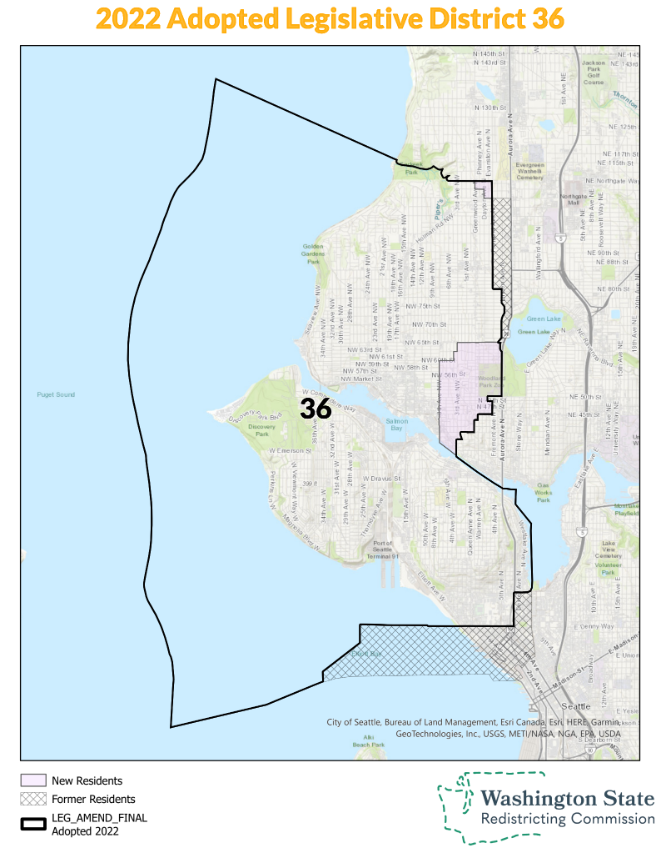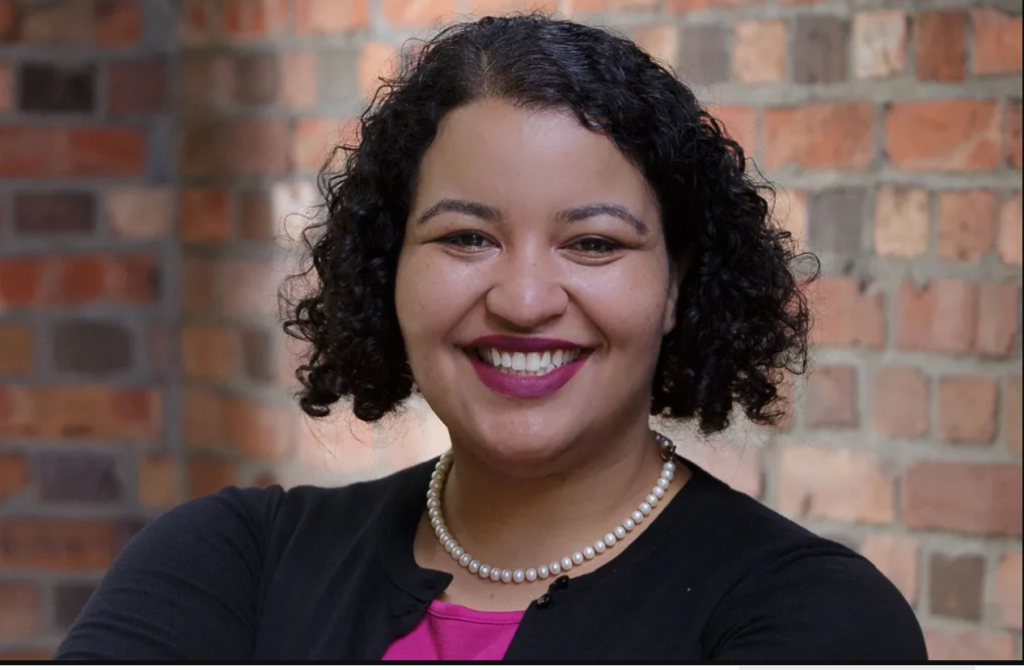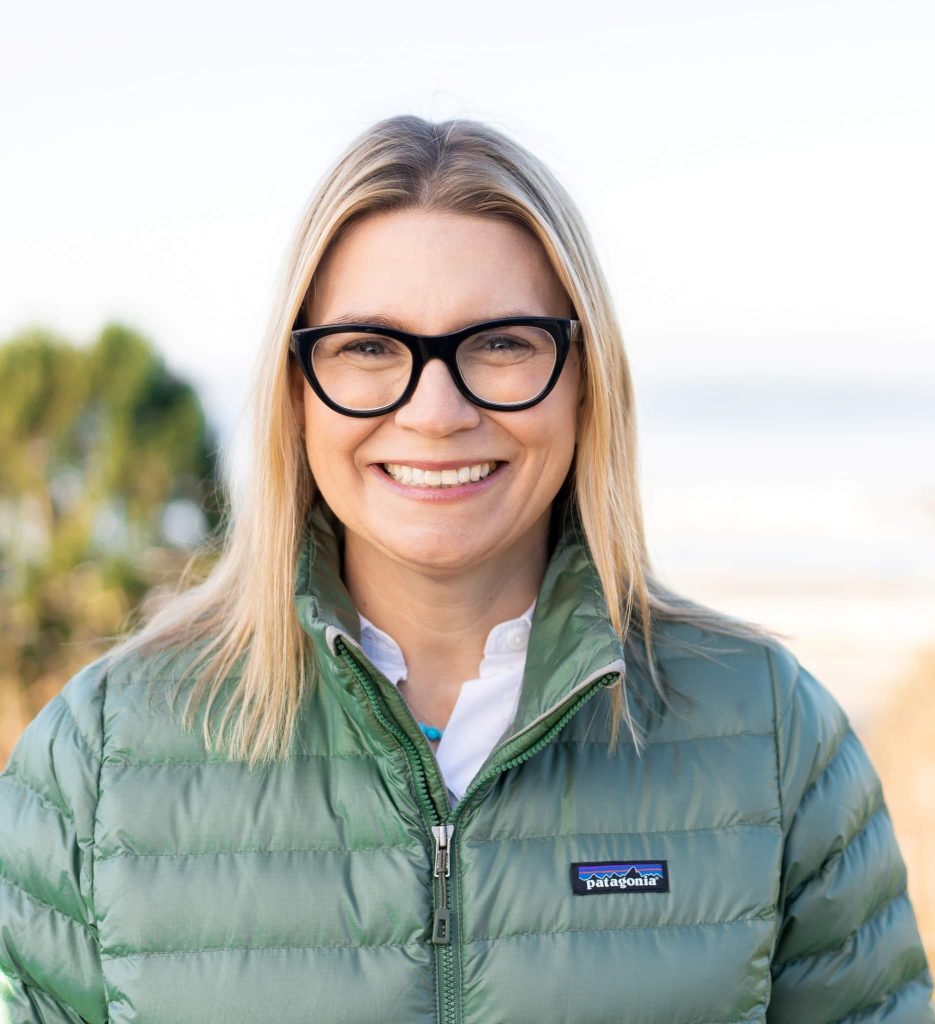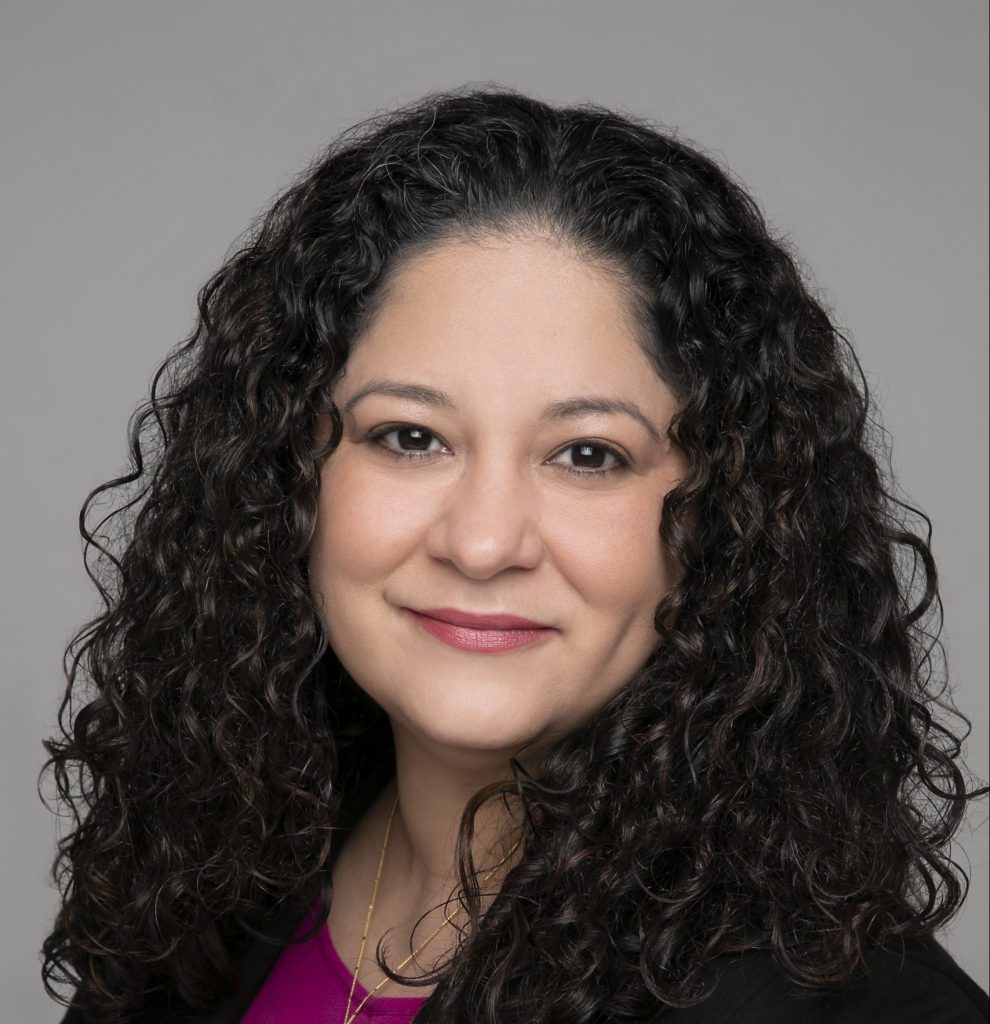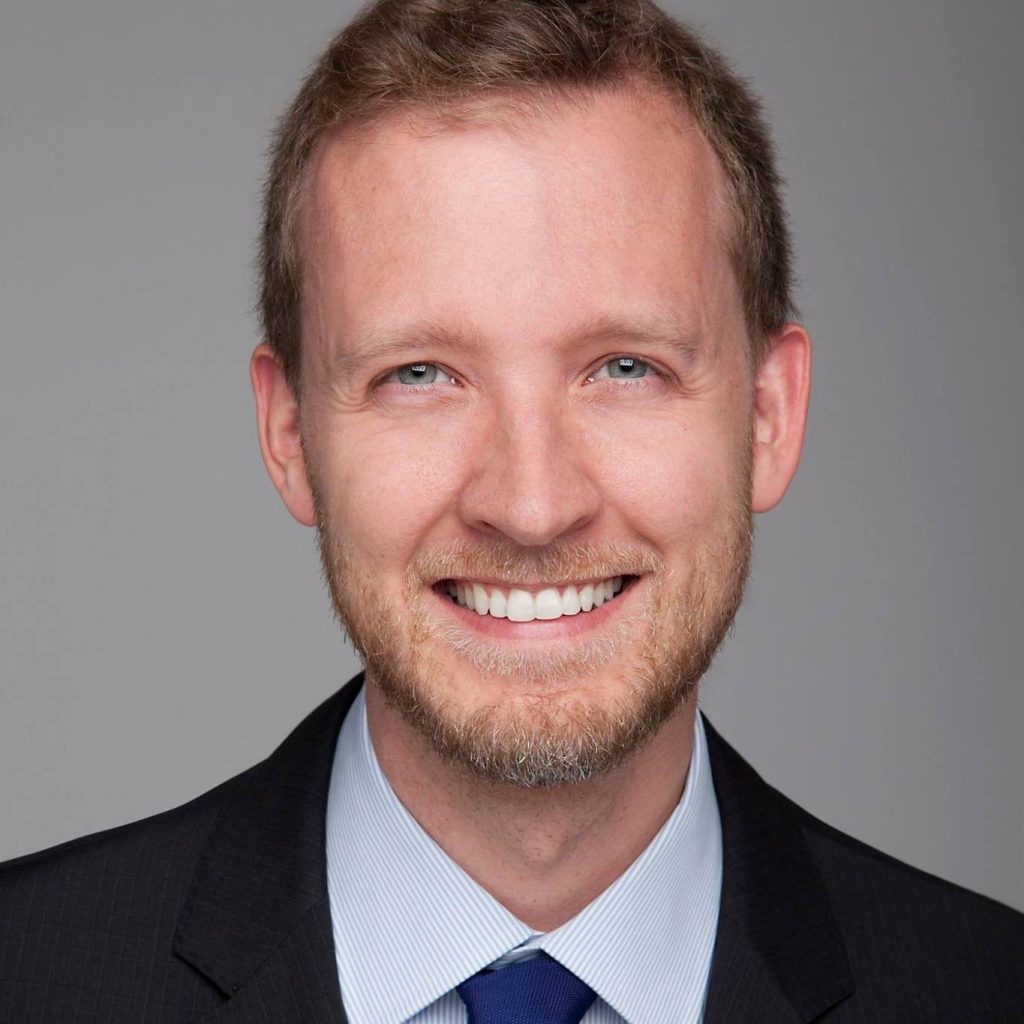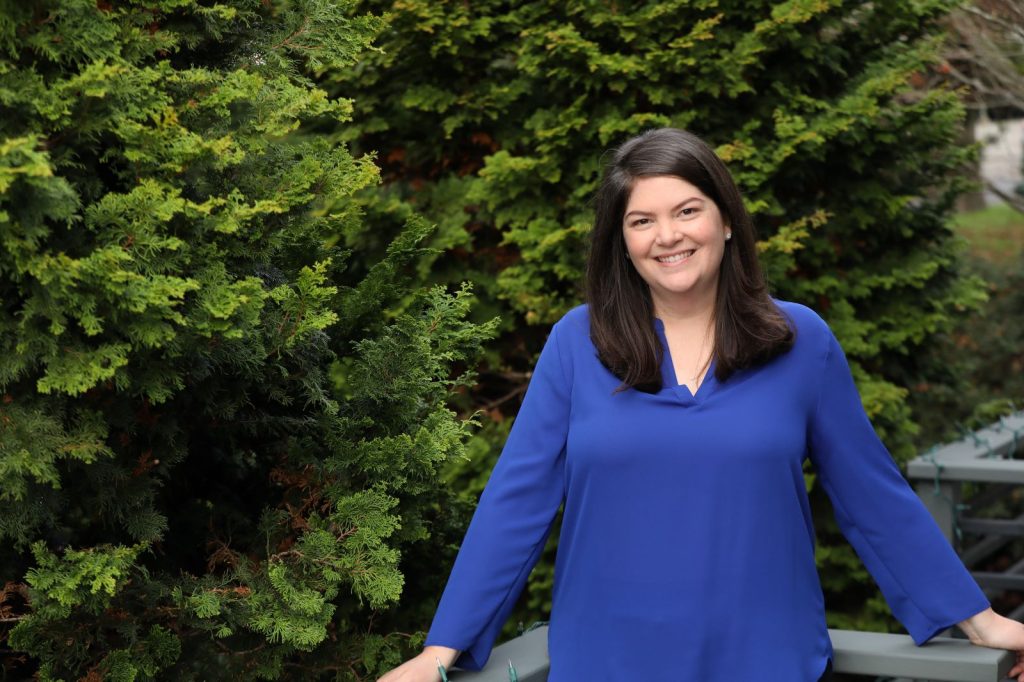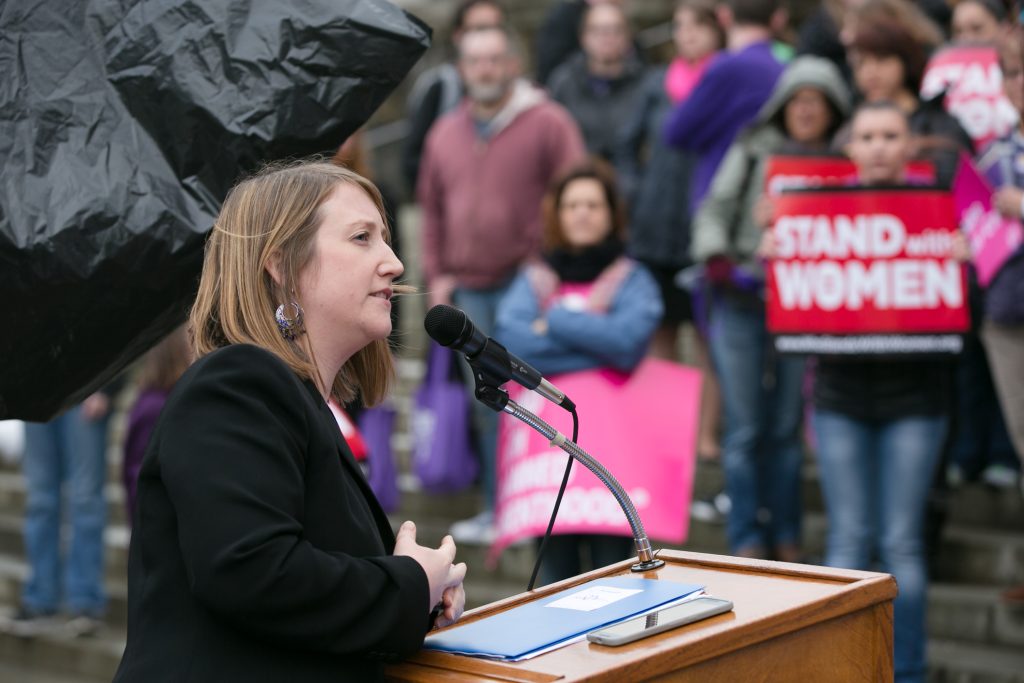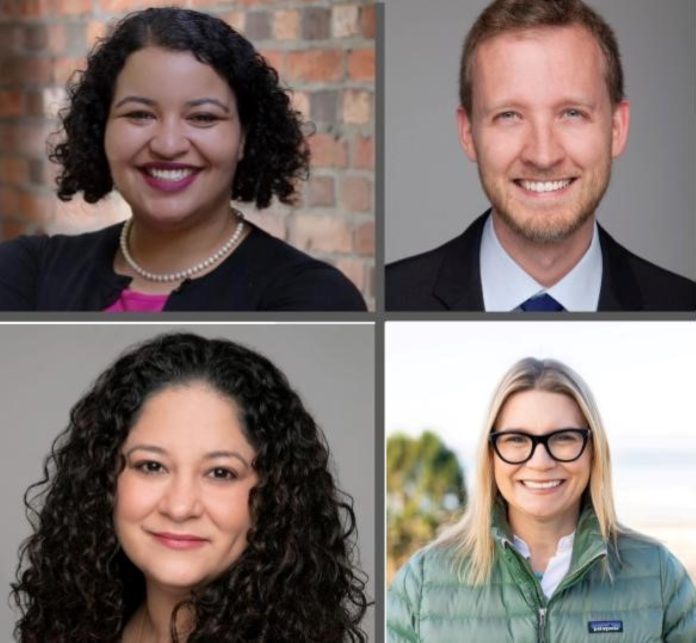
The big news in the 36th Legislative District is the retirement of Sen. Reuven Carlyle after a state legislative career spanning back to 2009. Rep. Noel Frame threw her hat in the ring to replace him and cleared the field. In the process, Frame vacated her seat in the House, and that open seat has attracted a handful of credible candidates, many of whom have much to commend them on urbanist issues.
We received questionnaire responses and conducted follow-up interviews with four candidates running for the open seat and both Rep. Liz Berry and Noel Frame. Berry is running unopposed in Position 2. Frame faces only Kate Martin, a perennial candidate with not much going for her. Martin was behind a poorly-thought-out 2015 ballot measure aiming keep the Alaskan Way Viaduct separating Downtown from the Seattle Waterfront in order to repurpose it as a wannabe High Line park at great expense.
For Position 1, the four candidates we interviewed were Julia Reed, Nicole Gomez, Tyler Crone, and Jeff Manson. Their questionnaire responses are below. Waylon Robert is also in the race, but skipped our questionnaire and interview.
With redistricting going into effect this election, the 36th District has lost Belltown, its chunk of South Lake Union, and a narrow band along Aurora Avenue north of Woodland Park. In its place, the 36th picked up all of Phinney Ridge, West Woodland, and a bit of Fremont. The political lean of the district remains progressive, however.
Julia Reed: Urbanist 2022 Questionnaire LD36 Pos. 1
What is your top priority for the upcoming term, and how will you achieve it?
My top priority for the upcoming term is to pass a series of practical investments that push Washington toward a more climate resilient future. I will achieve this by working in coalition with others to expand inclusionary zoning statewide by bringing back missing middle housing legislation, using funds from cap and invest to create a grant program to fund climate resiliency projects in cities (especially wildfire smoke resilient air filtration systems in community buildings), turning the Seattle Maritime Academy into a statewide maritime academy that can provide the future electric fleet workers of the state, fund e-bike subsidies, and investing in workforce development programs that are focused on green infrastructure, just fuel transitions, and clean manufacturing. To get these things done, I will focus on building relationships with legislators across the state, and work with organizations like the Urbanist to build advocacy urgency for needed climate-friendly investments.
Washington State adopted a “Target Zero” goal of ending traffic deaths by 2030, but fatalities are trending in the wrong direction. What do you propose to rectify this situation?
We need to be doing much more to build infrastructure in Seattle that deprioritizes cars and prioritizes transit, walking, and rolling. As someone who primarily gets around by electric bike, I live first hand how dangerous our streets are — especially when I’m traveling to Magnolia or Ballard to campaign, on bridges and roads with little to poor pedestrian infrastructure. As a legislator, I would build on transit-friendly wins of the most recent Move Ahead Washington bill, and go even further. I hope to serve on the Capital Budget committee in order to ensure all state infrastructure investments include pedestrian, transit, and bike friendly architecture.
What is your stance on Rep. Jessica Bateman’s missing middle housing bill (HB 1782) that failed to pass last session and would you support similar legislation to legalize abundant housing statewide? If so, what steps will you take to ensure its passage in the upcoming session? If not, what policy to promote housing growth and affordability do you support?
I support HB 1782. As a millennial, I see how the lack of housing availability affects so many of my peers. Putting in 8-12 offers on a home because of short supply and intense competition, having to rely on intergenerational wealth to even think about purchasing a home, and continuing to be the state with the fewest number of housing units per household of any state in the nation (as the Lieutenant Governor’s recent report found we are) is not sustainable. I see building missing middle housing as the pathway to ensure young people like me who grew up in Seattle can afford to live in their home neighborhoods, that elders can live near their kids, that working people can live near their jobs, and that we can grow without creating greater traffic, sprawl, and reliance on cars. In the upcoming session, I hope to partner with Rep. Bateman to get this legislation passed. I’m keenly aware that it was lack of Democratic support, not Republican opposition, that doomed the bill before. I hope that having more millennials like me in the legislature, who can speak to the challenges of the lack of housing supply, will help add further urgency to this critical issue.
Would you vote for a bill that ends the ban on rent control in Washington? Why or why not? Would you support statewide rent stabilization similar to Oregon?
Yes. Recently purchasing a condo after many years of renting has underscored for me how unjust it is that the only currently available form of rent control in our state is homeownership, which is unfortunately only available to a privileged few. Everyone deserves to have security in knowing their rents will not arbitrarily rise. Everyone deserves some protection from market forces in order to have a safe place to live. Eviction because of rent hike can be the kickoff of a traumatic cycle that ends in homelessness and ends up costing our communities heavily. We should be allowed to have some reasonable regulations to help people remain in their homes.
Washington State has ambitious climate goals, but isn’t yet on course to meet them. What do you see as the missing pieces?
Transition to electric transportation infrastructure and lack of non-car infrastructure. Our state has a thriving international export economy, but that also means we have many diesel powered trains, cargo ships, airplanes, and trucks crisscrossing our state every day. We have massive cruise ships coming in and out of our ports. We are building ever expanding highways. While we have plans to address some of these issues, such as electrifying ferries and requiring ships to use onshore power, the progress is too slow, and there are too many exceptions made. We have to accelerate electrification efforts in all of our transportation networks, including car transportation. One issue I would like to see the state advance is electric bicycle subsidies in any bill that includes electric car subsidies. Electric bikes can be a game changer for communities, and are significantly more affordable than electric cars. Subsidizing e-bike purchases could also help get people out biking more, creating a larger constituency of people using bike infrastructure (and insisting on its improvement).
Under what circumstances, if any, would you support adding highway lane miles?
In instances where small mile increases are the tradeoff to get much more significant climate-friendly investments. I’m going to Olympia to deliver change for my communities. But I’ve worked in public service and government long enough to know that the legislative process requires compromise and coalition building. I think the problem is not that you should never compromise, but that compromises in Olympia tend to come with major gains for cars and only modest gains for other transportation investments. I want to flip that equation.
I will fight every day to build the strongest coalition possible that will stand up for every other form of transportation besides adding highway lane miles. If it becomes necessary to make small tradeoffs to meet the majority of our goals, I will work with my constituents and the broader urbanist community (both little “u” and big “U”) to decide which tradeoffs they find acceptable, and which lines we won’t cross. I will always be transparent, I will always be accountable to my constituents, and I will always be listening.
What reforms of the Growth Management Act do you support, if any?
As a former Regional Affairs Director for the City of Seattle who was responsible for Seattle’s relationship with the Puget Sound Regional Council planning body, I know how impactful reforms to these wonky but critical pieces of legislation like the GMA and city’s comprehensive plans can really be. I support reforms like those outlined by Futurewise’s WA Can’t Wait coalition, including HB 1099 which would have required Washington counties and cities to effectively plan to prevent emissions that cause climate change. I will support any legislation that reforms the GMA to prevent urban sprawl, require cities to address climate change in their planning, reduce emissions, protect forests and farms, increase equity, and fight gentrification.
Do you think Washington state should have an income tax (yes/no)? If yes, what is the legislative path? If not, would you pursue any tax reform?
Yes, I think we should have an income tax, and certainly that tax should be on billionaire wealth. We cannot thrive as a state long-term if a small number of people are able to hoard wealth while the rest of us pay for schools, transit, and infrastructure. The legislative path goes through the senate, which is why I’m excited to see Noel Frame, an advocate for tax reform, represent the 36th in the state senate. I also support advancing other progressive revenue policies, especially those championed by Balance our tax code, which include: a new 1% tax on the value of stocks, bonds, and other financial intangible assets over $1 billion, eliminating the estate tax for smaller estates while raising the rates for higher valued estates, repealing statewide advisory votes and adding more information about legislative budgeting to the voter pamphlet, creating a Guaranteed Basic Income Program, and fully implementing the Working Families Tax Credit.
What more should the State be doing to increase mobility for those who cannot drive or chose not to, a constituency which composes about a quarter of the population?
The best thing the state can do to increase mobility for those who cannot or choose not to drive is to invest in infrastructure statewide that allows this constituency to safely get around. As a woman of color who also bikes, I know it’s a lot to ask someone who is already vulnerable to get out there and mix it up in lanes with cars and increasingly large SUVs and trucks. In addition to just the usual dangers of traffic, you also have to worry if someone is going to go after you because of your gender or skin color, and you know that you are always at increased risk. I’ve had close calls with people in cars who have hurled misogynist or racist slurs at me on my bike. I choose to ride anyway, because I love it and its the best way for me to get around and I won’t let anyone take that away. However, just because I choose to bear the risk, doesn’t mean I should have to, I very much *want* to be able to get around safely. And without better infrastructure investments, I know many other physically and socially marginalized people will accept artificial limits on their mobility rather than try out a half-built, risky system. We are doing a disservice to people of our state because we have chosen to prioritize a more dangerous, more environmentally harmful form of transportation. Let’s change that.
What approach will you take to promoting public safety?
Public safety is probably the issue I hear about the most when I’m out talking to voters in my district. Like every city in the nation, crime has increased in Seattle in the wake of the pandemic. It’s a serious and urgent problem. But we can’t address that problem just by doubling down on old solutions that have not worked in the past (e.g. encampment sweeps, temporary increases in street patrol, “broken window” policing, etc.) and expect they will magically work now.
I have the experience of listening to the community about what they need to feel safe and I think that is is the most important part of promoting public safety. As a board member and advocacy chair for the YMCA Social Impact Center, have seen first-hand how community-based public safety responses like the Center’s Alive and Free program transform lives and communities, creating permanent, long-lasting safety that does not rely on incarceration or police. Many communities are calling for these types of peer-led, community-centered, non-police solutions to public safety challenges, but they receive a tiny fraction of the investment and attention that police departments receive. Violence in our public sphere is being treated as a purely criminal issue, instead of a symptom of underinvestment in community programs, mental healthcare, housing, and jobs. People with lived experience, who could be helping the state understand how to effectively respond to violence and crime in communities, are not being heard.
I think as a state government, we’ve been doing a lot of reacting instead of being deliberate. I am committed to listening to communities about their safety needs, and to standing by them even when it’s politically inconvenient.
Tyler Crone: Urbanist 2022 Questionnaire LD36 Pos. 1
What is your top priority for the upcoming term, and how will you achieve it?
My top priority for the upcoming term is learning from COVID-19, reinforcing the public health infrastructure we need to respond to and recover from this once in a century pandemic, and working in/building the needed coalition(s) to take a whole of government approach.
Washington State adopted a “Target Zero” goal of ending traffic deaths by 2030, but fatalities are trending in the wrong direction. What do you propose to rectify this situation?
Bringing a public health spotlight to traffic deaths, focusing on primary prevention, and putting more momentum behind the existing work to combine a public health framework with livability/ public safety. This is a key moment to be assessing the data around what works, and what does not work to end traffic deaths. Safer roads/infrastructure and attention to pedestrians coupled with attention to not driving while impaired are top of mind.
What is your stance on Rep. Jessica Bateman’s missing middle housing bill (HB 1782) that failed to pass last session and would you support similar legislation to legalize abundant housing statewide? If so, what steps will you take to ensure its passage in the upcoming session? If not, what policy to promote housing growth and affordability do you support?
Housing is a human right and Seattle has a drastic lack of housing across all price points, most especially of affordable housing. We need to be taking a whole state approach to housing challenges that Seattle, in particular, is facing. I agree with the premise of building out and incentivizing middle income housing. And I am keen to dig in to understand in granular terms how we expand housing in a rapid way and ensure it is affordable so that we can strengthen the vibrancy, social fabric, and inclusiveness of our neighborhoods.
Would you vote for a bill that ends the ban on rent control in Washington? Why or why not? Would you support statewide rent stabilization similar to Oregon?
I was a renter in Seattle for fifteen years prior to only being able to purchase a home because my landlord died in a once in a century pandemic. The skyrocketing cost of rents are driving displacement and related rent increases coupled with evictions drive homelessness. A statewide rent stabilization approach makes common sense, and would be an important pillar in addressing the housing challenges we face.
Washington State has ambitious climate goals, but isn’t yet on course to meet them. What do you see as the missing pieces?
Some of the missing pieces that I see as I dig in and speak with the people who’ve been on the frontlines of change as well as constituents who are deeply concerned include:
1) We need to be growing good green jobs, and ensuring that we have a just transition to those jobs so that we are tapping the full potential of the green economy.
2) Some of the elements that I have been thinking about and focused on starts with the smoke season that has become a fixture in the recent past. I am concerned about it as a public health emergency, and approaching the challenge with an equity and justice lens to consider who is most impacted — including those who are unsheltered, our kids, our elderly, and those living in neighborhoods without tree canopies or without the resources to filter the air in their homes. The fires that have become so routine on our side of the country are driving air pollution impacts across the country, and the impact of air pollution on shortening our longevity was a top concern for the World Health Organization on Earth Day.
3) This links to a broader question to me of climate resilience — planning for climate impacts such as extreme weather events and having the resources to recover from them.
4) From my work in global public health and partnership with the UN, I have also looked to the recent UN report which urges us to center indigenous knowledge and leadership — so I have also been in conversation with our local tribes to understand their priorities.
5) As I talk to constituents — there is a keen interest to retain and build out our tree canopy, holding both our grey and green canopy. There have also been exciting ideas shared for how to build out a green economy in Magnolia, and a model of a living building that will be a model of green architecture to help meet density needs in the space where Albertsons is currently located in Magnolia as well.
6) And when I look across at what key advocacy entities as well as former elected officials in our District are sharing — I am in conversation with Reuven Carlyle to see how to build from the work he has led and looking to the Evergreen Future platform of the Washington Conservation Voters.
7) The latest reports I have read on our shortfalls in saving the salmon, and the failures of the hatchery system give me pause around whether we are directing our actions and resources for impact and results.
8) Ultimately, I want to understand and assess whether we are asking the right questions and measuring success in tangible impacts.
Under what circumstances, if any, would you support adding highway lane miles?
I would like to be in further conversation about this — as I am just studying the body of evidence around how we don’t turn in to a San Francisco or Los Angeles with endless lanes of traffic; how we meet our ambitious and critical climate goals; how we alleviate the gridlock on our highways; and what alternatives we have to move people/products/freight.
What reforms of the Growth Management Act do you support, if any?
The Growth Management Act has the opportunity to be more intentional around and articulate about the climate crisis we face, and needs to be revisited to see how we are managing the influx into Washington State since it was written. Are we ensuring that our cities are accessible, affordable, and connected? Let’s prevent emissions. Let’s close loopholes that may enable sprawl at the cost of farmland and forests. These plans need to be funded and assessed from an equity, diversity, and inclusion vantage point.
Do you think Washington state should have an income tax (yes/no)? If yes, what is the legislative path? If not, would you pursue any tax reform?
Yes. Keep. On. Moving.
What more should the State be doing to increase mobility for those who cannot drive or chose not to, a constituency which composes about a quarter of the population?
Building more means for connecting us that is transit not car based, and ensuring that our transit is connected, accessible, efficient, and safe. For example, I hear too often about the impacts of light rail elevator closures on people who then have to be carried by strangers to access transit.
What approach will you take to promoting public safety?
Everyone deserves to feel safe and to be safe. I will promote and address public safety through an approach focused on upstream prevention, on housing, on mental health supports, on thriving wages, good jobs, accessible training, and safe workplaces. We would be in a far different place if we cared for and had social supports available for people who needed them, and continued the ongoing work toward accountability and reform within our criminal systems.
Nicole Gomez: Urbanist 2022 Questionnaire LD36 Pos. 1
What is your top priority for the upcoming term, and how will you achieve it?
We can begin to address the cost of living, homelessness, and climate change with a common solution -– building more affordable homes in dense urban areas with good transit. To achieve it, I will work with champions to pass legislation opening up single family zoning to allow for different types of homes such as duplexes, triplexes, fourplexes, courtyard buildings, etc.
Washington State adopted a “Target Zero” goal of ending traffic deaths by 2030, but fatalities are trending in the wrong direction. What do you propose to rectify this situation?
Investments in public safety infrastructure and training are important, but so are investments in reliable and affordable public transit near housing to encourage increased ridership and is what I personally would continue to push to expand. Reimagining how we approach public safety in transportation is key to reaching the “Target Zero” goal and I look forward to working with the stakeholders.
What is your stance on Rep. Jessica Bateman’s missing middle housing bill (HB 1782) that failed to pass last session and would you support similar legislation to legalize abundant housing statewide? If so, what steps will you take to ensure its passage in the upcoming session? If not, what policy to promote housing growth and affordability do you support?
The inaction on the missing middle housing bill was a tragedy, and I would support the bill’s revival and/or similar legislation. The math is simple: when a large segment of our population is held back from homeownership through systemic inequity and a housing affordability crisis, the entire economy suffers. To help push the bill through, I will emphasize the economic implications of not acting and continue to emphasize the large gap in what is affordable to middle class families. I will ensure that any housing bill proposed addresses affordability.
Would you vote for a bill that ends the ban on rent control in Washington? Why or why not? Would you support statewide rent stabilization similar to Oregon?
Yes, I support rent stabilization and tightening of the rules for evictions similar to Oregon with a limit on rent increases plus annual inflation adjustments. Rent stabilization is a tool that helps to prevent displacement, especially when wages aren’t keeping up with rising rents. There is debate in the research on rent stabilization saying the greatest benefits go to those with the highest incomes, I would be interested in exploring ways to first benefit those needing it most.
Washington State has ambitious climate goals, but isn’t yet on course to meet them. What do you see as the missing pieces?
I think that we needed, and still need, to write climate planning into the Growth Management Act as was proposed in HB 1099 last session because unless action is taken at the state level, some municipalities will not participate in efforts to mitigate the effects of climate change or support emissions reductions. That said, we also need to elect progressive minded individuals to lead these efforts at every level of government. We cannot kick the can down the road on the climate!
Under what circumstances, if any, would you support adding highway lane miles?
To quickly reduce transportation carbon emissions, we need to fundamentally shift our planning, policy development, and infrastructure investments to prioritize public transit, walking, and biking over personal vehicles. There are extremely limited reasons for highway expansion such as very rural areas experiencing an exponential amount of growth, which is -– quite bluntly – rare. That said, in densely populated areas, highway expansions only serve to exacerbate traffic. Our state dollars are best used elsewhere.
What reforms of the Growth Management Act do you support, if any?
I support adding a climate action plan for cities and counties and strengthening housing planning and affordability requirements.
Do you think Washington state should have an income tax (yes/no)? If yes, what is the legislative path? If not, would you pursue any tax reform?
Yes, our upside-down regressive tax system needs reform! Ideally that would be in the form of an income tax. Because of our state constitution, a progressive income tax would require a two-thirds supermajority of the legislature followed by a majority vote of the people. This will take collaboration, education, and commitment by everyone. While those efforts are underway, along with defending capital gains, I support the wealth tax as proposed by Rep. Frame, a 1% tax on the value of stocks, bonds, and other financial intangible assets over $1 billion.
What more should the State be doing to increase mobility for those who cannot drive or chose not to, a constituency which composes about a quarter of the population?
Not only should the state be doing more, but I would like to see that constituency expand. As part of both my stance on environmental issues and housing affordability, I would like to see zoning laws amended to allow for higher density affordable housing near public transportation. Reliable and affordable access to transportation that connects our communities to jobs, education, health care, and each other. When our transportation system works for everyone, we all thrive. More broadly, the Move Seattle Levy/Plan is an excellent example of the type of investment I would like to see more of — expanding biking, transit, walking, and freight access are key to healthier and happier communities.
What approach will you take to promoting public safety?
My approach to promoting public safety will be to support policies that prevent harm. In the past legislators have implemented punitive laws designed to promote compliance through fear. Those do not work. We would do better to invest in social policies that prevent crime such as education, health and housing. Working to build strong partnerships between policing agencies and the communities they service should be the basis for violence reduction strategies.
Jeff Manson: Urbanist 2022 Questionnaire LD36 Position 1
What is your top priority for the upcoming term, and how will you achieve it?
Housing affordability & the homeless crisis. Many of our neighbors can no longer afford to live in their homes, so they move out of the city, or onto our streets. To ease supply constraints, we need tens of thousands of additional housing units built in the region over the next decade. I will support smart density legislation, prioritizing transit-oriented development. For those who are unhoused, we need more funding for shelters, tiny homes, supportive housing, and affordable housing options. For tenants, cities and counties should have the flexibility to regulate rents and evictions in a way that makes sense for their communities. Landlords should be held accountable for violations of landlord-tenant law.
Washington State adopted a “Target Zero” goal of ending traffic deaths by 2030, but fatalities are trending in the wrong direction. What do you propose to rectify this situation?
Increase use of traffic camera enforcement, expand pedestrian and bike infrastructure, expanded sober driving enforcement and education.
What is your stance on Rep. Jessica Bateman’s missing middle housing bill (HB 1782) that failed to pass last session and would you support similar legislation to legalize abundant housing statewide? If so, what steps will you take to ensure its passage in the upcoming session? If not, what policy to promote housing growth and affordability do you support?
I would support similar legislation. Our region is not building new housing units fast enough, and leaving it to municipalities to solve has clearly failed. When there is a statewide market failure, it is appropriate for the state to step in.
Would you vote for a bill that ends the ban on rent control in Washington? Why or why not? Would you support statewide rent stabilization similar to Oregon?
Cities and counties should have the flexibility to regulate rents and evictions in a way that makes sense for their communities. While I do not support NYC-style rent control, I am open to a smart, balanced law like Oregon’s, which limits economic evictions, but still provides sufficient incentive to build new rental units.
Washington State has ambitious climate goals, but isn’t yet on course to meet them. What do you see as the missing pieces?
The good news is WA is doing as much as any state in combating climate change. The bad news is it’s not enough. We should start with some legislation that failed last session: electric vehicle subsidies, promoting electrification of buildings, and including climate effects in GMA comprehensive plans. We also do not need to wait another 10 years for the next pro-climate transportation package.
Under what circumstances, if any, would you support adding highway lane miles?
Adding highway lane miles would be my lowest transportation priority. I could support it if presented with compelling data of a freight corridor bottleneck, for example.
What reforms of the Growth Management Act do you support, if any?
Adding climate effects to comprehensive plans.
Do you think Washington state should have an income tax (yes/no)? If yes, what is the legislative path? If not, would you pursue any tax reform?
Yes. I would follow the lead of Rep. Noel Frame and the Tax Structure Workgroup.
What more should the State be doing to increase mobility for those who cannot drive or chose not to, a constituency which composes about a quarter of the population?
The State has a responsibility to provide for mobility of everyone, regardless of whether they drive. The 2022 transportation package invested a lot in transit and bike/pedestrian infrastructure. We don’t need to wait another 10 years before the next transportation package that invests in these transportation alternatives.
What approach will you take to promoting public safety?
Crime is increasing nationwide, including in our neighborhoods. Keeping our streets, homes, and small businesses safe requires a multi-pronged approach. We must fully fund our criminal justice system, including the courts, prosecutors and defenders, social workers, health care providers, investigators, first responders, and law enforcement, while creating and maintaining police accountability standards, training, and independent enforcement. We must attack the root causes of criminal activity by funding mental health, behavioral health, and addiction treatment, while providing the housing and basic needs necessary to support individual recovery.
Liz Berry: Urbanist 2022 Questionnaire LD36 Position 2
What is your top priority for the upcoming term, and how will you achieve it?
I would like to pass an Extended Producer Responsibility (EPR) policy in WA. This is a big lift, but I am building on great work from 2022 session. I am also doing research this interim on a bottle deposit system similar to what is in place in OR and BC. I also want to continue my work to ban harmful chemicals from consumer products after passing my bill to ban toxic PFAS chemicals from this last session. WA now has the strongest law in the country and we can continue to be a leader on this. I also hope to be Chair of the House Labor Committee and will be working on policies to protect and uplift workers.
Washington State adopted a “Target Zero” goal of ending traffic deaths by 2030, but fatalities are trending in the wrong direction. What do you propose to rectify this situation?
We need to lower speed limits and make sure we are building and maintaining infrastructure that puts people before cars. As your urbanist voice on the House Transportation Committee, I am proud that we passed a transformational 16-year transportation package that makes meaningful, targeted action against climate change by investing $5.4B in green transit, bike and pedestrian infrastructure; $1.3B to electrify our ferry fleet; $290M in Safe Routes to School programs; and commits 35% of Climate Commitment Act funds into programs serving communities of color, low-income and tribal communities. The package also directs $25M to support infrastructure of the Ballard Interbay Regional Transportation Corridor as well as $50M for safety improvements to North Aurora right here in the 36th.
What is your stance on Rep. Jessica Bateman’s missing middle housing bill (HB 1782) that failed to pass last session and would you support similar legislation to legalize abundant housing statewide? If so, what steps will you take to ensure its passage in the upcoming session? If not, what policy to promote housing growth and affordability do you support?
I was a proud cosponsor of HB 1782 and have worked closely with Jessica on strategy in the 2022 session. We are already working with our Housing for All Caucus, of which I am a member, to ramp up pressure on members, especially those from urban areas, to earn support. This also includes working with outside stakeholders. More to come on this but we are not giving up the fight. Missing middle housing is key to affordability in our region.
Would you vote for a bill that ends the ban on rent control in Washington? Why or why not? Would you support statewide rent stabilization similar to Oregon?
Absolutely and I see the OR model as one that would work well in WA.
Washington State has ambitious climate goals, but isn’t yet on course to meet them. What do you see as the missing pieces?
As a member of the House Environment & Energy Committee, it was an honor to champion landmark legislation in 2021 to implement carbon pricing and low-carbon fuel standards to reduce greenhouse gas emissions, and we’ve continued our great work this year by targeting landfills and expanding renewable energy projects like solar. The Move Ahead WA package is aimed at decarbonizing our transportation sector. WA has now passed about 85% of the policies needed to meet net zero emissions by 2050, but we still need to tackle buildings in a big way and also citing and permitting so it’s easier to build the necessary infrastructure.
Under what circumstances, if any, would you support adding highway lane miles?
I don’t support adding highway lane miles and have been a loud voice in the House Transportation Committee on this issue.
What reforms of the Growth Management Act do you support, if any?
We need to pass Davina Duerr’s HB 1099 and we will get it done next session. That was a real heartbreaker for many of us this year.
Do you think Washington state should have an income tax (yes/no)? If yes, what is the legislative path? If not, would you pursue any tax reform?
Yes, we need an income tax and work is being done in the interim with the Tax Structure Workgroup to bring a path to the legislature. I fully support these efforts.
What more should the State be doing to increase mobility for those who cannot drive or chose not to, a constituency which composes about a quarter of the population?
See above on our historic investments to transit, pedestrian and bike infrastructure in the Move Ahead WA package. There was a small group of us in the legislature making it very clear we would not support a package without major funding to expand these services. The $50M in funding to reimagine the dangerous Aurora corridor is transformational and I am proud to be a part of the effort. I recognize we have more to do and I will continue to listen to those with lived experience and other stakeholders and continue to be an advocate from within the legislature.
What approach will you take to promoting public safety?
Systemic racism has burrowed its way deep into our criminal justice and policing systems. To root it out requires bold policy action and I have been fully committed to that change as your State Representative. During the 2021 legislation session, we passed a package of 11 police reform bills to ban chokeholds and neck restraints, military equipment, no-knock warrants, and restrict vehicular pursuits; implement de-escalation and use of force restrictions; create transparency and oversight in investigations; and hold officers and departments accountable for wrongdoing. As a result, police killings of Washington residents were down 60% last year, the largest improvement in the country. While these are important first steps to rebuild the trust between law enforcement and communities, I remain dedicated to building on these successes in the years to come. I am here to listen. I am here to learn. I will not be silent anymore. I believe that Black Lives Matter.
Noel Frame: Urbanist 2022 Questionnaire LD36 Senate
What is your top priority for the upcoming term, and how will you achieve it?
My top priority for the upcoming term is to improve economic prosperity for us all. As Finance Chair, I passed the Capital Gains Tax and am leading the way for a Wealth Tax. Fixing our upside-down and regressive tax code is critical to achieving a fair economy for working families and small businesses. I will continue to lead the fight toward a progressive tax system and ensure that the wealthiest among us pay their fair share.
I will also fight for workers by providing access to jobs with living wages and good benefits and a commitment to equal pay for equal work. While the Puget Sound has boomed, the benefits and opportunities of our economy have been dispersed unequally across our community. We must reduce childcare costs to help support working families, and provide job training outside of a traditional four-year college path to prepare our youth and mid-career adults for a variety of careers.
Washington State adopted a “Target Zero” goal of ending traffic deaths by 2030, but fatalities are trending in the wrong direction. What do you propose to rectify this situation?
The recent dramatic rise in injuries and deaths in our transportation system — particularly among vulnerable users — is unacceptable. As cars get larger, and include more built-in distractions, they are becoming more deadly to others. This must be addressed through design. New transportation projects with state transportation dollars need to deliver safety through design and policy — narrower lane widths, built protection for pedestrians and people on bikes, lower speed limits, increased signage, as well as driver education and enforcement.
What is your stance on Rep. Jessica Bateman’s missing middle housing bill (HB 1782) that failed to pass last session and would you support similar legislation to legalize abundant housing statewide? If so, what steps will you take to ensure its passage in the upcoming session? If not, what policy to promote housing growth and affordability do you support?
I was a proud co-sponsor of HB 1782, and while I was disappointed that the bill did not pass, I remain committed to passing similar legislation in the upcoming session. As people continue to move into Washington state, the need for new homes is growing, and our local zoning laws have failed to produce housing at the level we need. I’m already working behind the scenes to make sure I understand and can respond to criticisms that were raised on the legislation that were complaints embedded in tax policy. I’m also expecting to support recommendations coming out of the Homeownership Disparities Work Group addressing access to affordable homeownership.
In recent years, I have supported several bills to increase housing supply, including HB 2343 to increase urban residential building capacity and HB 1724 to promote permanent supportive housing in planning. I will continue to work with my colleagues like Representative Bateman to increase middle housing, particularly in areas near transit centers.
Would you vote for a bill that ends the ban on rent control in Washington? Why or why not? Would you support statewide rent stabilization similar to Oregon?
Rising rents and purchase prices of homes are pushing people out of the city, and the number of unhoused neighbors has risen dramatically since the beginning of the COVID-19 pandemic. We need supply and we need to ensure that once folks are in housing, they can stay there. In recent years, I have supported numerous efforts to provide greater rent assistance and eviction prevention programs and if I ever got a chance to vote to reverse the ban on rent control, I’d happily do it (though this is almost as hard as income tax — see below!). Localities must make informed decisions on rent control to address affordability and prevent homelessness in their communities and the state should allow local communities to make the best decisions for themselves.
Washington State has ambitious climate goals, but isn’t yet on course to meet them. What do you see as the missing pieces?
Creating green jobs through building modern, accessible transportation and infrastructure, and expansion of solar, wind and other alternative fuels is not only the right thing to do to save the planet, it’s the smart thing to do for Washington workers and businesses.
Last session, I supported the Move Ahead Washington & Supplemental Transportation Budget. Washington, which provided $16.8 billion in investments for projects across the state, including historic levels of funding for public transportation, road preservation and maintenance, and climate mitigation. I will continue the fight to reduce carbon emissions by prioritizing more sustainable transportation and construction, and embedding this in our planning process (through the passage of HB 1099). This includes building higher density, multi-family housing near transit centers, and getting rid of exclusionary housing and restrictive zoning.
Under what circumstances, if any, would you support adding highway lane miles?
Highway widening projects have the potential to upend our state’s otherwise aggressive carbon emissions reduction strategies. Adding highway lanes often fails to reduce congestion and instead increases traffic and pollution. Expansion can disproportionately affect disadvantaged communities by displacing BIPOC households.
When possible, we should prioritize fixing our existing infrastructure before building new roads. If highway widening is determined to be desperately needed in a given area, the project must consider environmental impacts and ensure that it does not displace families.
What reforms of the Growth Management Act do you support, if any?
Last session, I co-sponsored HB 1458, which amended the Growth Management Act for adaptive planning, affordable housing, and tribal consultation. I also support HB 1099. While these bills did not make it through the Legislature, I will continue to work toward similar reforms tied to climate goals in the upcoming session.
Do you think Washington state should have an income tax (yes/no)? If yes, what is the legislative path? If not, would you pursue any tax reform?
I am leading the fight — locally and nationally — toward a progressive revenue system. Our tax structure in Washington is the most regressive in the country. In fact, the lowest income folks in our state pay at least six times more in taxes as a share of their income than the highest income households. Wealth inequality was exacerbated during the pandemic, with the rich getting richer and working people getting poorer. Now is the time to ensure the wealthiest among us must pay their fair share.
In 2021, I was the Prime Sponsor of the Washington State Wealth Tax (HB 1406), which establishes a 1 percent tax on intangible financial assets of more than $1 billion. In recent years, I have also co-sponsored and passed the Working Families Tax Credit, the Capital Gains Tax, the Reauthorization of Tax Structure Work Group and the B&O Small Business Tax Credit. I will continue to champion the fight for tax accountability while in the Senate.
While I support an income tax (which I’d want to be our own version here in WA rather than piggybacking on the federal income tax, which is deeply flawed), I do not currently see a legislative path. I say this after a year leading public engagement on tax policy, including 14 tax town halls across the state, and having corporate and personal income tax shot down, hard (despite businesses always saying they’d prefer to pay their tax on their net, or profit, they are not willing to take a personal income tax in order to get one on the corporate side). The wealth tax is the better, more popular path forward.
What more should the State be doing to increase mobility for those who cannot drive or chose not to, a constituency which composes about a quarter of the population?
Last session, I was proud of the progress we made in this area by passing the historic Move Ahead Washington & Supplemental Transportation Budget. The package makes significant investments in bike and pedestrian infrastructure, the ferry system and transit service. The almost $17 billion budget includes over $4.3 billion in transit, bike and pedestrian investments and $150 million for Ultra High-Speed Rail. I will continue to work to expand accessibility and mobility in our public transportation system.
What approach will you take to promoting public safety?
Every person in every community has the right to feel safe in their homes and in their neighborhoods. For too long, our criminal legal system has been disproportionately incarcerating black and brown people, devastating generations of families. Furthermore, our public policy has not supported successful re-entry. Policies that limit access to housing, education and jobs set these individuals up for a life of crime to survive.
Our police officers must receive adequate training that focuses on de-escalation tactics when responding to people experiencing a crisis. They must also be held accountable when they ignore the basic civil rights of members of our community, leading to unnecessary bodily injury or even death. We need a more comprehensive approach to community and public safety that acknowledges and provides real resources to respond to individuals in crisis, particularly those with behavioral health challenges and developmental disabilities.
The third leading cause of death for children in the US is now gun violence. I’m committed to continuing to promote common-sense gun safety legislation to reduce the fear of gun violence for all in our state. I also support passing evidence-based gun violence prevention policies that will make Washington safer and save lives.

Elections Committee
The Urbanist was founded in 2014 to examine and influence urban policies. We believe cities provide unique opportunities for addressing many of the most challenging social, environmental, and economic problems. We serve as a resource for promoting urbanism, increasing political participation, and improving the places we live. The Elections Committee consists of community volunteers and staff members of The Urbanist and is a standing body representing the political values of our organization.

